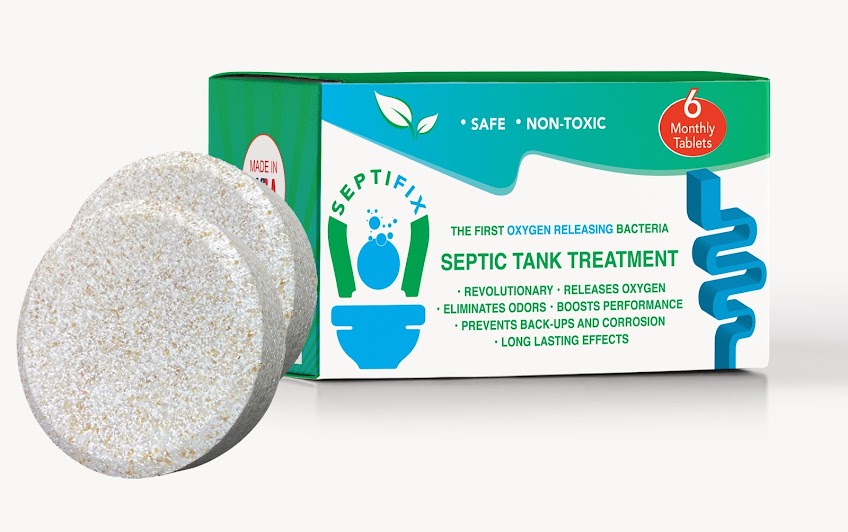Are Septic Tanks Dangerous?
Septic tank systems are essential in several inhabited regions where municipal sewer lines and treatment plants are not entirely practical due to low population. As such, individual homes or properties need to install dedicated on-site septic tank systems. Septic tanks are enclosed areas built specifically to collect decomposed domestic wastes, sewage and its resultant gaseous matter. Sewer gases can be both toxic and non-toxic. This is why this method of sewage disposal and treatment has become a health concern in some areas.
Are septic tanks dangerous? Septic tanks are potentially dangerous as they, primarily, contain a variety of potentially toxic sewer gases which pose health risks when inhaled. Sewage gases are composed mainly of methane which can be extremely toxic, especially in high concentrations. Septic tanks present serious hazards which include, aside from possible methane gas explosion and asphyxiation hazards, septic tank collapse or cave-in, as well as health risks caused by unsanitary conditions such as bacterial or viral infections, especially so if the septic tank system has been neglected and not subjected to proper routine maintenance and monitoring.
Sewage gas is a mix of hydrogen sulphide, ammonia, carbon dioxide, nitrogen dioxide, sulphur dioxide and in some cases, carbon monoxide. Hydrogen sulphide is potentially poisonous even in small amounts and can cause eye irritations, shortness of breath, and/or persistent coughs. Exposure to higher concentrations of hydrogen sulphide can be fatal. The concentration of all these gaseous components may vary over time, with the actual composition of sewage, the surrounding environmental temperature, and the contents’ pH levels.
Aside from septic tanks’ gaseous content, there is also danger from collapsing of ill-maintained septic tank lids and accidentally falling into the tank itself, exposing one to overwhelming levels of septic tank gases. Fatalities involving falling into or carelessly entering the septic tank happen around the world, some from preventable causes such as open covers, poorly-maintained tanks or tank covers, and from high concentrations of methane gas or hydrogen sulfide.
Septic Tank Health Risks
A failing septic tank system poses a multitude of health risks both inside and outside of your home or business property. Every responsible property owner should make it a point to be aware of the health risks that you, your family, or your employees could face if the on-site septic tank system has been lacking adequate service, maintenance, and repair.
A poorly-maintained septic tank system may have become vulnerable to collapse or cave-in over time, risking people and pets to injury with the slightest of external force or pressure. Merely stepping on a cracked or compromised tank cover can be dangerous.
A failing septic tank has the great potential to release fumes from the various toxic gases that have likely accumulated within the septic tank. Methane, as earlier discussed, is highly flammable and toxic to people and animals. Another common septic emission is sulfide gas that can cause severe health risks. Sulfide gas smells like rotten eggs, and prolonged exposure to it can cause irritation in one’s mouth, nose, and throat. Septic tank fumes will likewise typically carry airborne bacteria, which are leading causes of sinus infections and a whole host of other respiratory problems.
Your home or business property will be highly susceptible to mold spore growth due to a failing septic system. This can be very problematic for adults and children with asthma or mold allergies. If left unchecked, these spores will further spawn mold growth in parts of your home or office that have high levels of moisture buildup (such as basements and bathrooms). Mold reparation can be quite costly, not to mention difficult, and this is why it is crucial to address any failure in your septic system upon the first and early signs.
Septic Tank Safety Tips
It is crucial to always observe safety measures in and around your septic tank system, especially by the septic tank opening. Educate yourself, your family, or your staff on all safety precautions within the vicinity of your septic system, especially when they are working on or near the septic areas.
Use only high-grade septic tank lids and mark off the location of your septic tank. Your septic tank access port should be protected with a sturdy lid at all times. High-grade septic tank covers are not easily removed, and this is important to keep children in the property safe. If you are uncertain of the location of your septic tank, a professional septic system provider can help you in determining the placement of every component of your septic tank system. It is wise to keep “as-built” records and diagrams of your septic tank system for future reference.
Avoid leaning over the septic tank opening. As much as you can help it, never lean over the opening of a septic tank. The gases that emanate from the tank could be noxious enough to make you black out and fall into the tank, which could be highly fatal.
Take care not to ignite flames near the septic tank. Methane gas, produced by the waste contents of the septic tank, is highly explosive. Keep brush fires and even lit cigarettes as far away from the septic tank.
Stay alert to electrical wire and shock hazards. When digging at any part of your yard, make sure to watch out for electrical or mechanical lines that are buried underground. Cutting through these lines, most especially around a septic system can be extremely dangerous.
Never enter a septic tank. Never enter a tank to work on it, even to retrieve another person in it, unless you are specifically trained for such task and are wearing special clothing and equipment, including a self-contained breathing apparatus. Instead, it is wiser to call emergency services and septic tank system professionals. Place fans around the top of the septic tank opening to force in fresh air, helping in the dispersal of concentrated septic fumes.
Don’t drive over your septic tank and drainfield systems. Heavy vehicles, machinery, or equipment driving or parked over a system can compact the ground soil and apply excessive stress upon the system. Repairing broken pipes and/or collapsed septic systems can be quite expensive.
If you are working in and around a septic system, make sure that you have covered whatever open cuts on the skin that you may have and properly wash up and disinfect after working on your septic system. Septic systems can cause serious bacterial and viral infections. Always seek professional assistance to keep you, your family, and/or your employees safe. Make sure all necessary safety precautions are observed. When uncertain, calling your local septic service provider is always your safest bet.
How Often Should a Septic Tank Be Emptied?
A septic tank needs to be routinely inspected and pumped, ideally every three to five years. However, the frequency of septic tank pumping can be specific to the tank size, the amount of solid wastes entering the tank, and the overall habits of its users. The only guaranteed way to ensure that your septic tank system is kept in good running condition is to have it inspected regularly – annually, if at all possible. The thickness of the sludge and scum layers need to be measured in order to determine when the tank needs to be pumped.
Whenever the bottom of the scum layer comes within 3 inches of the base of the outlet baffle or when the top of the sludge layer comes within 12 inches of the base of the outlet fitting, you’ll know that the septic tank needs to be pumped. Another way to look at it is when the level of the combined solid wastes in the septic tank is occupying about 25% of the septic tank’s entire volume, it is time to have your tank pumped. Note, however that the frequency of monitoring and measuring can vary depending on the number of occupants in your home or business facility, not to mention their collective personal habits related to washing and toilet use.
If annual inspection is not plausible, remember that your septic tank should be opened and inspected at least every 3 years. This is to ensure that the baffles are all intact and functional.
Keep in mind that diligently subjecting your septic tank system to regular and periodic inspection and pumping, you are avoiding the most common causes of (highly preventable) septic tank system failure.
The challenge is that there typically are no immediately identifiable indications of a septic tank leak, corrosion, or other susceptibility. It is often true that you will not know that there is a problem in your septic tank unless you have it opened and pumped out. Regular maintenance of the whole septic system is perhaps one of the best investments any home or business owner can make for their property. Routine and religious maintenance of your septic system will certainly save you from the inconvenience and worry of very expensive emergency system repairs, not yet mentioning the medical efforts to address health and danger risks to you and your loved ones.
Get Septic Tank & System Services Here
[us_map]
https://medcraveonline.com/JACCOA/JACCOA-06-00228
https://www.jstor.org/stable/3343002
https://www.wte-ltd.co.uk/septic_tank_dangers.html
https://inspectapedia.com/septic/Septic_Tank_Safety.php
https://www.angieslist.com/articles/8-lifesaving-septic-tank-safety-tips.htm










